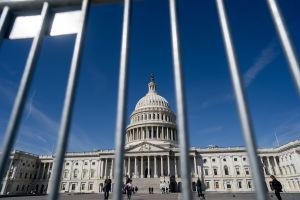BEIJING, Aug. 7 (Xinhua) — China on Monday urged the United States to stop utilizing the South China Sea issue to sow confusion and discord, respect China’s territorial sovereignty, maritime rights and interests in the South China Sea, and respect regional countries’ efforts to uphold peace and stability in this region.

A Chinese foreign ministry spokesperson made the remarks in response to a U.S. State Department statement criticizing China for obstructing Philippine vessels that sought to deliver new troops and supplies to a grounded military vessel at Ren’ai Jiao and firing water cannons.
The U.S. statement says such actions are “inconsistent with international law” and “threatening regional peace and stability” and calls upon China to abide by the South China Sea arbitration award issued in 2016. The statement indicates U.S. support for “the Philippines’ lawful maritime operations” and says an armed attack on the Philippines’ Coast Guard would “invoke U.S. mutual defense commitments under the U.S.- Philippines Mutual Defense Treaty.”
The State Department’s statement, in disregard of the facts, attacked China’s legitimate and lawful actions at sea aimed at safeguarding its rights and enforcing the law, and the statement also voiced support for the Philippines’ unlawful and provocative behavior, the spokesperson said.
“China firmly opposes the statement,” the spokesperson said.
For some time, the United States has been inciting and supporting the Philippines’ attempts to overhaul and reinforce its military vessel that was deliberately grounded on Ren’ai Jiao. The U.S. even sent over military aircraft and vessels to assist and support the Philippines, and repeatedly sought to threaten China by citing the U.S.-Philippines Mutual Defense Treaty. The U.S. has been brazenly bolstering Philippines as it infringes upon China’s sovereignty, but those moves will not succeed, the spokesperson said.
The spokesperson said Ren’ai Jiao has always been part of China’s Nansha Qundao and the historical context of the issue of Ren’ai Jiao is very clear.
In 1999, the Philippines sent a military vessel and deliberately ran it aground at Ren’ai Jiao, attempting to change the status quo of Ren’ai Jiao illegally. China immediately made serious démarches to the Philippines, demanding the removal of the vessel. The Philippines promised several times to tow it away, but has yet to act. Not only that, the Philippines sought to overhaul and reinforce the military vessel in order to permanently occupy Ren’ai Jiao, the spokesperson said.
On Aug. 5, in disregard of China’s repeated dissuasion and warning, the Philippines sent two vessels that intruded into the adjacent waters of Ren’ai Jiao and tried to deliver the construction materials for overhauling and reinforcing the grounded military vessel. Such actions violated China’s sovereignty and the Declaration on the Conduct of Parties in the South China Sea (DOC). The China Coast Guard (CCG) vessels stopped them in accordance with law and warned them off through appropriate law enforcement measures. Their maneuvers were professional, restrained and beyond reproach, the spokesperson said.
The South China Sea arbitration was a pure political drama staged in the name of the law with the U.S. pulling strings behind the scenes. The so-called award contravenes international laws, including UNCLOS, and is illegal, null and void. The U.S.’ attempt to make an issue of the illegal award will not affect China’s firm resolve to safeguard its territorial sovereignty, maritime rights and interests in accordance with the law, the spokesperson said.

